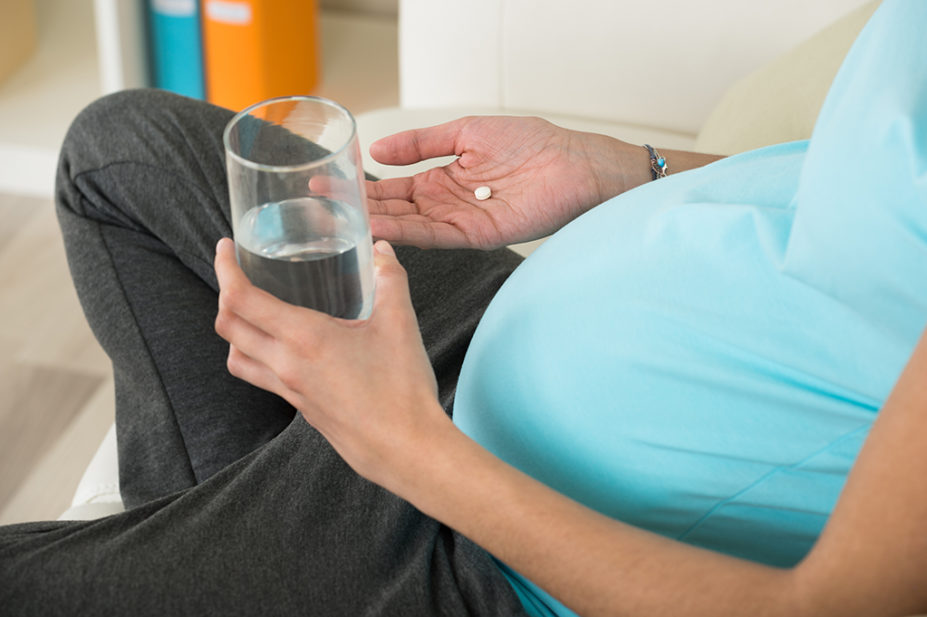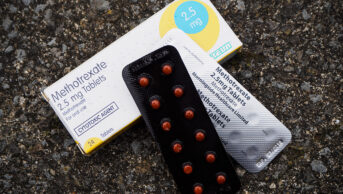
Shutterstock.com
The Medicines and Healthcare products Regulatory Agency (MHRA) is reviewing data suggesting that genetic changes triggered by sodium valproate could be passed down through generations.
As part of its safety review into the epilepsy drug, the MHRA has confirmed it has asked the Commission on Human Medicines (CHM) — an independent expert panel — to look at data showing its transgenerational effects in mice.
Data published by NHS Digital in March 2022 showed that 46 pregnant women were prescribed sodium valproate between October 2020 and September 2021, despite guidance stating that it should not be prescribed in pregnancy owing to the risk of birth defects.
The MHRA announced its safety review into sodium valproate in May 2022, part of which involved asking for views from patients and healthcare professionals.
Product information on sodium valproate already includes a warning about behavioural abnormalities in first generation offspring of mice and rats after exposure to sodium valproate during pregnancy, the MHRA said.
However, it is seeking advice on research as some of these behavioural changes have been observed in their second-generation offspring and, although less pronounced, in the third generation.
A spokesperson for the MHRA said: “As part of our ongoing review of the safety of sodium valproate, we have been carefully assessing all available data on its benefits and risks and have sought independent advice from the government’s expert scientific body, the CHM, on the effectiveness of the current measures to support safe use of valproate.
“The available data under consideration by CHM includes animal data that shows changes to the testes in juvenile male animals and transgenerational effects in mice.
“The CHM review has benefited by incorporating the views of a wide range of stakeholders, including patients and families. We will communicate further on the outcome of these discussions as soon as the advice is finalised.”
In a report published in Birth Defects Research in November 2021, data from 108 individuals from 90 families who had complications after valproate exposure in the womb, who had then had their own children, also suggested that the drug could affect future generations. It is not yet clear if the MHRA is considering this study.
The study authors called for more pharmacoepidemiological investigations of epigenetic inheritance caused by valproate and other drugs, and potential links to malformations or neurodevelopmental disorders.
A national valproate registry, which details the number of females prescribed valproate in England and any pregnancies among these women, was set up in June 2021. The register also shows whether or not valproate continued to be prescribed during pregnancy.
In response to the NHS Digital figures published in April 2022, Jeremy Hunt, chair of the House of Commons Health and Social Care Committee, called for a ban on prescribing sodium valproate to pregnant women with epilepsy.
Daniel Jennings, senior policy and campaigns officer at charity Epilepsy Action, said while it was concerning to read about possible transgenerational risks of sodium valproate, it was important to highlight that what is seen in animal studies does not necessarily mean the same is true for humans.
“There have been some reports from people severely affected by valproate use in pregnancy of their children having birth defects and/or learning and development problems,” he said.
“But the evidence is very limited, and more research is needed to show if there is a link between valproate use in pregnancy and any problems in the children of those affected.”
Nicola Swanborough, head of external affairs at the Epilepsy Society, said: “For families whose lives have already been devastated by sodium valproate, it is heart-breaking to learn that the teratogenic effects of the medication may be passed on to future generations.
“The MHRA still has much work to do to effectively communicate risks around valproate and now it must proactively ensure that those children with foetal valproate spectrum disorder are identified, counselled and monitored through a proper longitudinal study.”
Read more: Everything you need to know about sodium valproate and other antiepileptic drugs in pregnancy
1 comment
You must be logged in to post a comment.
You may also be interested in

Patient safety commissioner to approach PM over ‘disappointing’ delay to valproate compensation

GPhC writes to pharmacy teams after methotrexate dispensed with instruction to take once daily

Why such an inertia? Red flag have been accumulating for long, from the bench, for more than a decade. Pharmacovigiliance is about drowsiness.
https://www.bmj.com/content/377/bmj.o1531/rr